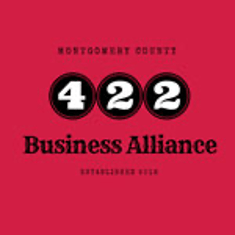The Federal Trade Commission (FTC) recently determined that non-compete agreements violated the Federal Trade Commission Act and announced a nationwide ban on their use going forward and certain restrictions for previous ones.
The commission believed non-compete agreements stripped energy from the American economy and hindered workers from seeking new jobs and starting new businesses. It thus believes the ban will increase salaries, reduce health care costs, and inspire more patents.
The Noncompete Rule will become effective September 4, 2024. The FTC will codify it in the Code of Federal Regulations at 16 CFR Part 910.
Employer Notice Requirements
The Noncompete Rule requires employers to notify to all workers (other than senior executives) bound to non-competes that they will no longer enforce the agreement.
Employers must forward the notice on or before September 4, 2024 (the effective date).
To assist, the FTC posted a sample notice containing model language (use link to access) that employers can use.
What is a Non-Compete Agreement?
The Noncompete Rule describes non-compete agreements as any written, oral, or business policy that penalizes, forbids, or attempts to stop a worker from seeking or accepting another position or operating another company.
Disputes regarding whether a non-compete agreement violates the rule will be handled on a fact-specific, case-by-case basis.
Who is a Worker?
The Noncompete Rule defines a worker as any current or previous worker, paid or unpaid. Such workers can include independent contractors, volunteers, and interns.
Who is a Senior Executive?
The Noncompete Rule defines a senior executive as a policy-making worker who also earns more than $151,164 a year. This annual salary includes commission and nondiscretionary (guaranteed) bonuses and compensation.
Policy-making refers to the authority to make significant decisions regarding a business’ direction. This definition does not involve advising or influencing a business’ decisions or making policy decisions for a business subsidiary.
Chief executive officers and presidents are policy-makers, but these positions may include others.
What Does the Noncompete Rule Do?
After the effective date (September 4, 2024), the Noncompete Rule:
- bans all new non-compete agreements with all workers, including senior executives.
- bans employers from enforcing existing non-compete agreements with workers (except in matters already in litigation).
Existing senior executive non-compete agreements, however, can stay active.
To What Does the Noncompete Rule Not Apply?
The Noncompete Rule does not apply to bona fide business entity Sale Agreements or any legal actions involving non-compete agreements that arose prior to the effective date (September 4, 2024).
The rule does not limit non-conflicting state laws that restrict non-compete agreements, but it will block state laws that conflict with it.
If an individual has a good-faith basis to believe that the Noncompete Rule does not apply, this may serve as a defense in an enforcement proceeding.
How Will the Rule Be Enforced?
Though the FTC Act deems rule violations “unfair methods of competition,” it does not offer a party private action rights and does not allow itself to recover civil penalties or other monetary relief from others participating in unfair competition methods.
The FTC may participate in its own internal review and consider issuing a cease-and-desist order to a violating employer. Or it may seek a federal court injunction that stops a business from engaging in prohibited activities. If a party fails or refuses to comply with an already issued rule violation cease and desist order, the FTC can seek to have that party held in contempt and obtain civil penalties.
What Inspired the FTC’s Decision?
In July 2021, President Joseph Biden issued an Executive Order encouraging competition. He claimed non-compete agreements improperly limited workers’ abilities and urged the FTC, which enacts laws to inhibit unfair business practices, to lessen their use.
Alternatives to Non-Compete Agreements
Non-disclosure agreements (NDAs) would effectively safeguard private and classified information. Many non-compete agreements already have NDAs. Another alternative are non-solicitation clauses.
Note, however, that NDAs and non-solicitation clauses that prevent workers from accepting employment or operating a business could still be considered non-compete agreements under the rule.
Suspected Rule Violations
After the effective date (September 4, 2024) business owners, workers, and customers can email suspected rule violations to the Bureau of Competition at noncompete@ftc.gov.
Federal Lawsuits
So far, there are three federal lawsuits challenging the FTC’s decision.
A Texas tax service firm believes that the FTC did not have the authority to issue the rule and that the its decision was unconstitutional. The Chamber of Commerce additionally filed suit in Texas. It, too, is questioning the bureau’s legal authority to issue the ban. The court, however, due to overlapping and “first in time” rule issues, stayed the Chamber of Commerce matter.
A tree service also filed a suit in Pennsylvania. It considers non-compete agreements necessary to protect training methods.
More plaintiffs may file additional lawsuits.
Stay Informed
Business owners should be aware of these changes, notice requirements, rule applications, and legal interpretations. They may also want to discuss other alternatives that would protect their business interests and consult with a professional advisor.
Watch this space for future blogs about this and other corporate law updates and changes.
The Fleischmann Law Firm, P.C.
The Fleischmann Law Firm specializes in business law and can guide your corporation through these and other rule and notice updates and changes.
The firm’s attorneys partner with you to minimize risk and liability, offer objective and fair assessments, and weigh all circumstances and options. They offer solid recommendations and provide superior representation.
Attorney Craig J. Fleischmann and staff offer over three decades of experience, integrity, cost-effectiveness, value, and integrity. Contact the Fleischmann Law Firm today.







